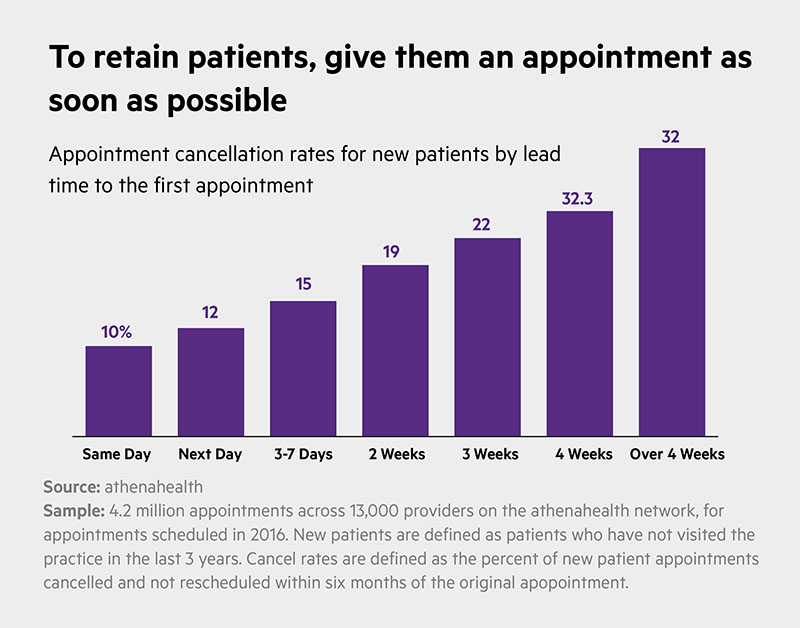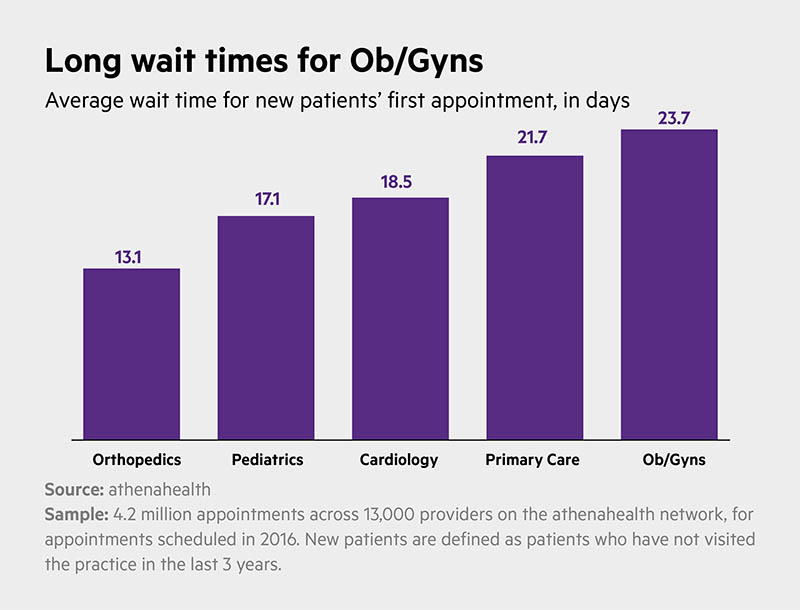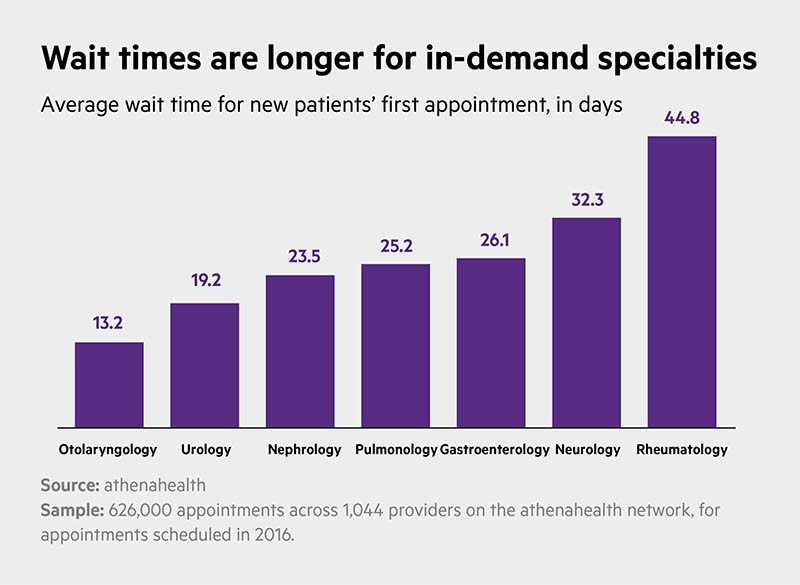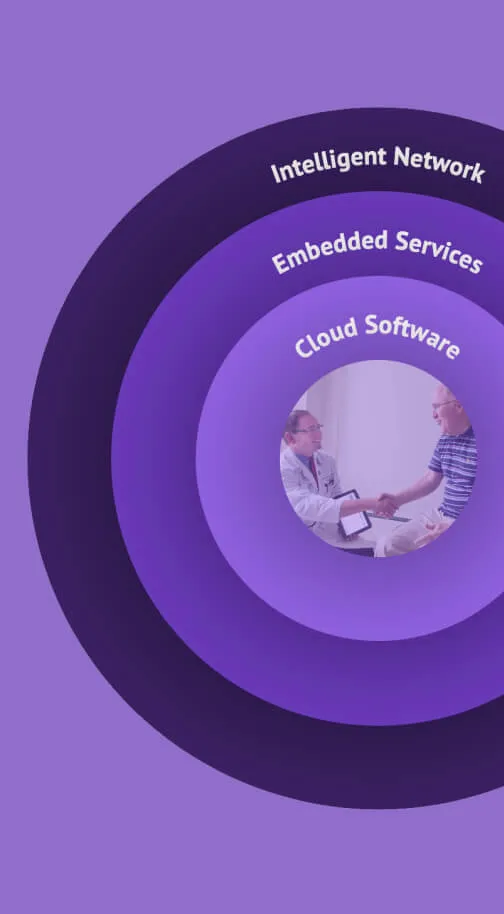When Gwendolyn Klein, an independent patient advocate in northern Virginia, counsels her clients about scheduling a first medical appointment, she assures them that it's a good sign if they have to wait.
“It's sort of like trying a new restaurant," she explains. “If the parking lot is full, it says something about the food. If there are people waiting weeks or a month to see a certain doctor, that's probably because that doctor is really good."
While many busy providers would agree with Klein's assessment, data from the athenahealth network show most would be wise to shorten those wait times. An analysis of 4.2 million appointments scheduled in 2016 by 13,000 providers found that shorter appointment lead times can be critical to getting new patients in the door.
Cancellation rates for first appointments, the data show, are closely correlated with how far out those appointments are scheduled. On average, a new patient who waits more than a month for a first appointment is more than twice as likely to cancel and not reschedule as a new patient who is scheduled within a week.

“The longer they have to wait, the less likely they are to show up," says Josh Gray, athenahealth's vice president of research. “These patients want to be seen, they want to form a relationship with a doctor, and when they have to wait too long, they walk away."
Even for a bustling practice, Gray says, “that's a true loss; it's not good for business."
Getting into 'the club'
Nationwide, according to athenahealth data, ob-gyn practices have longer new-patient scheduling leads times than many other specialties, at 23 days, as well as higher cancellation rates, at almost 25 percent.
That's not a surprise to Teresa Knight, M.D., owner and CEO of Women's Health Specialists of St. Louis. Her practice of three ob-gyns and a nurse practitioner gives top priority to established patients — and staff members make that clear to newcomers at the time of scheduling.
“If it's nothing urgent, we'll say something fun like, 'It may take you a while to get into the club, but we think you'll find it was worth the wait.'" On the other hand, Knight says, if a new client has a serious issue, “We're going to double-book or do whatever it takes to get her in."

One way the practice makes space for new patients with urgent issues is by encouraging established patients who have non-critical appointments to consider canceling visits that seem unnecessary. “Maybe we started someone on a new medication, so we scheduled her for an appointment in three months," Knight says. “We'll tell her, 'Look, if you're feeling great, send me a message through the portal, tell me everything is fine, and we'll cancel that appointment and give it to someone else.'"
Adjusting and adapting
Jeff Drasnin, M.D., president of ESD Pediatric Group in Ohio, a two-clinic practice serving more than 12,000 children, also looks to creative solutions in an attempt to accommodate new patients. (Pediatric practices nationwide average a scheduling lead time of 17 days and a cancellation rate of 14 percent.) “The key is flexibility," says Drasnin. His clinics employ 10 providers, and they do all of their scheduling by group. “If you call in and want to see one of us in particular, you can let the office know. But if you want to get in and out, then you book as a 'no request,' and then it's basically the next up-and-ready [provider]."
A group approach means the practice always has open slots for well visits and ill visits alike. It allows sick patients — including new ones — same-day appointments and helps keep the no-show rate “ridiculously low."
It's important to “set the tone" early with new patients, Drasnin says, “so they know how things work and what to expect." His practice uses automated phone calls and text and email reminders of appointments, and always collects insurance information in advance. “We're reaching out before they arrive — starting the conversation with them in advance."

Knight too relies on automated outreach with scheduled patients, which she says helps minimize cancellations. Scheduling itself, however, always happens with a person, and new clients always do so over the phone. “You can click a button online, and then we'll call you right away, or you can call us, and we'll pick up by the third ring."
New patients appreciate the personalized attention, Knight says, and seem less apt “to move on" when told how long they'll have to wait. “It's not concierge, but I think it's good service. It's part of our attempt to provide the best care that we can."
Chris Hayhurst is a writer based in Northampton, Massachusetts.












